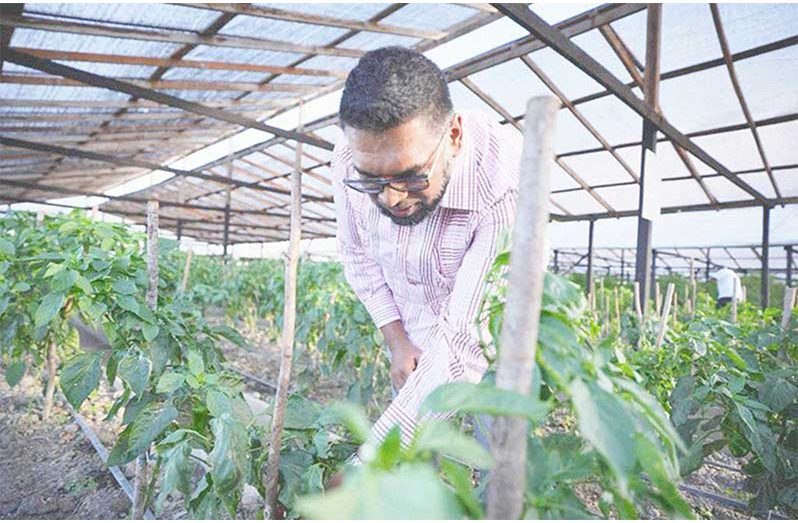GUYANA is positioning itself at the forefront of regional and global efforts to transform food systems, with President, Dr Irfaan Ali using his address to the 80th United Nations General Assembly to call for bold action to tackle hunger, ensure food security and build resilience in agricultural production.
Highlighting Guyana’s leadership within the Caribbean Community (CARICOM), President Ali spoke of ongoing efforts to implement the CARICOM Agri-Food Systems Agenda through “Vision 2030,” a strategy aimed at boosting food production, ending hunger and strengthening food security across the region.
He noted that Guyana’s experience proves how strategic investment and strong political will can drive real transformation in both national and regional food systems.
“Our experience demonstrates that strategic investment and political will can transform national and regional food systems,” the Head of State said.
Beyond the Caribbean, President Ali called for a global transformation of food systems to make them more resilient, sustainable, and equitable, particularly by strengthening local production and reducing dependence on volatile international markets. He warned that current global food systems remain too vulnerable to external shocks, disproportionately affecting developing nations and small economies.
With growing global concern over food insecurity, particularly in the context of conflicts, climate change, and economic instability, the President positioned Guyana as a willing and capable partner in global co-operation.
“Guyana stands ready to share its experience and partner with others to ensure nutritious food for all,” President Ali added.
Out of 186 countries, only Guyana produces enough food to feed all its citizens without foreign imports, according to a recent study published in Nature Food.
Nature food had investigated how well each country could feed its populations in seven food groups: fruits, vegetables, dairy, fish, meat, plant-based protein and starchy staples.
Worldwide, the study found that 65 per cent of countries were overproducing meat and dairy, compared to their own populations’ dietary needs.
It also found that Guyana was the only country that could boast total self-sufficiency, while China and Vietnam were close behind, being able to produce enough food in six out of seven food groups.
Just one in seven of the tested countries was judged self-sufficient in five or more categories.



.jpg)








